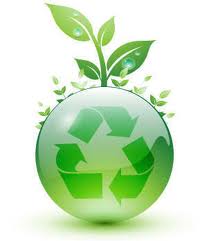 What are the benefits of recycling metal?
What are the benefits of recycling metal?
1. Economic Benefits
2. Energy Conservation
3. Conservation of Natural Resources
4. Environmental Benefits
Economic Benefits
According to the National Institutes of Health, National Recycling Coalition: The recycling industry in general generates $236 billion annually and employs more than a million workers across America.
Energy Conservation
Recycling scrap metal uses less energy than making metal from virgin ore. For example, the National Institutes of Health says recycling aluminum uses 95 percent less energy than deriving it from raw materials, while recycling steel reeduces energy usage by 60 percent.
According to the U.S. Environmental Protection Agency, if you recycle a single aluminum beverage can, you help conserve enough energy to power a 60-watt light bulb for more than four hours.
Energy Savings:
Estimated energy savings achieved by manufacturing products with nonferrous scrap:
- Aluminum: 95%
- Copper: 85%
- Lead: 65%
- Zinc: 60%
Conservation of Natural Resources
Natural resources are conserved when we recycle metals.
Environmental Benefits
 Our Conservation:
Our Conservation:
There are many different environmental benefits to metal recycling. For example, by using recycled metal as opposed to mining virgin ore there are far less green house gas emissions. In addition, using scrap metal in lieu of virgin ore generates 97 percent less mining waste and uses 40 percent less water, according to the National Institutes of Health.
Benefits of using Iron and Steel (ferrous metals) instead of virgin ore to make new steel:
1. Savings in energy: 74%
2. Savings in virgin materials: 90%
3. Reduction in water use: 40%
4. Reduction in water pollution: 76%
5. Reduction in air pollution: 86%
6. Reduction in mining wastes: 97%
7. Reduction in consumer waste generated: 105%
Environmental Recycling Benefits and Facts:
Information supplied by: National Recycling Coalition
- Every ton of paper that is recycled saves 17 trees.
- Recycling conserves natural resources, such as timber, water, and minerals.
- Recycling prevents habitat destruction, loss of biodiversity, and soil erosion associated with logging and mining
- The energy we save when we recycle one glass bottle is enough to light a light bulb for four hours.
- Recycling benefits the air and water by creating a net reduction in ten major categories of air pollutants and eight major categories of water pollutants.
REFERENCES
- National Institutes of Health: Recyclable Materials
- U.S. Environmental Protection Agency: Individual Waste Reduction Model
- City of San Diego Environmental Services Department: Benefits of Recycling
- National Recycling Coalition: Top 10 Reasons to Recycle
- Source: Institute of Scrap Recycling Industries
